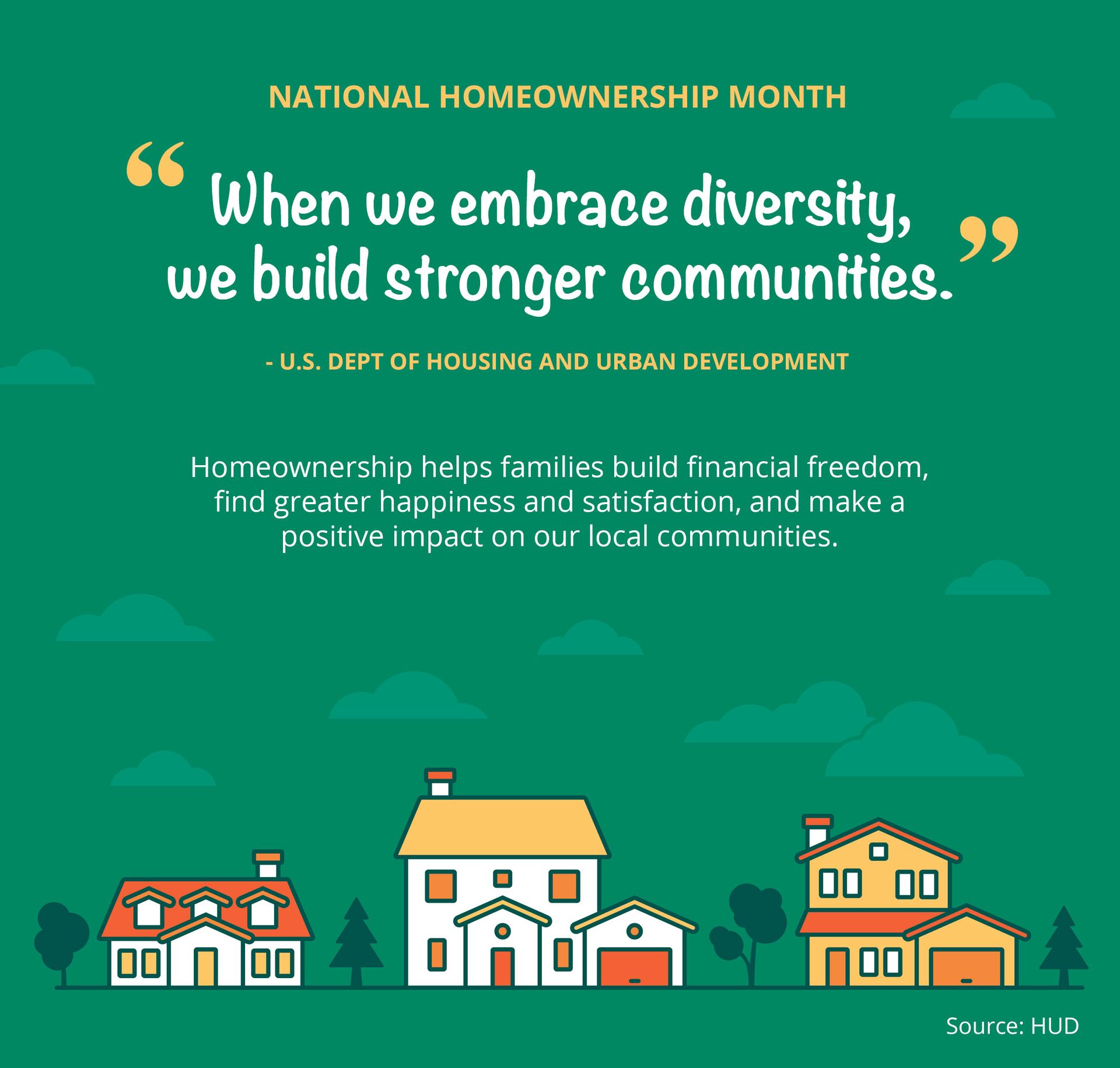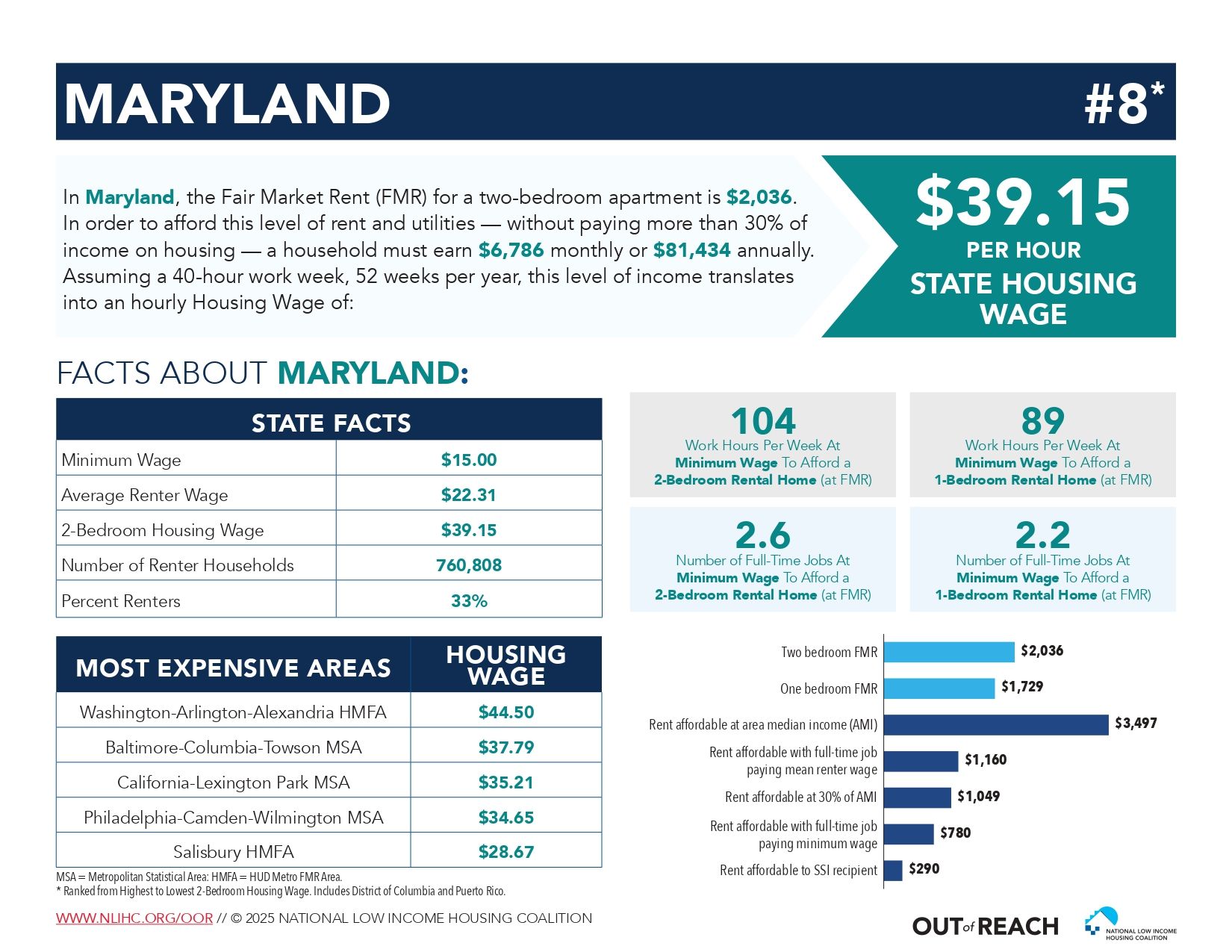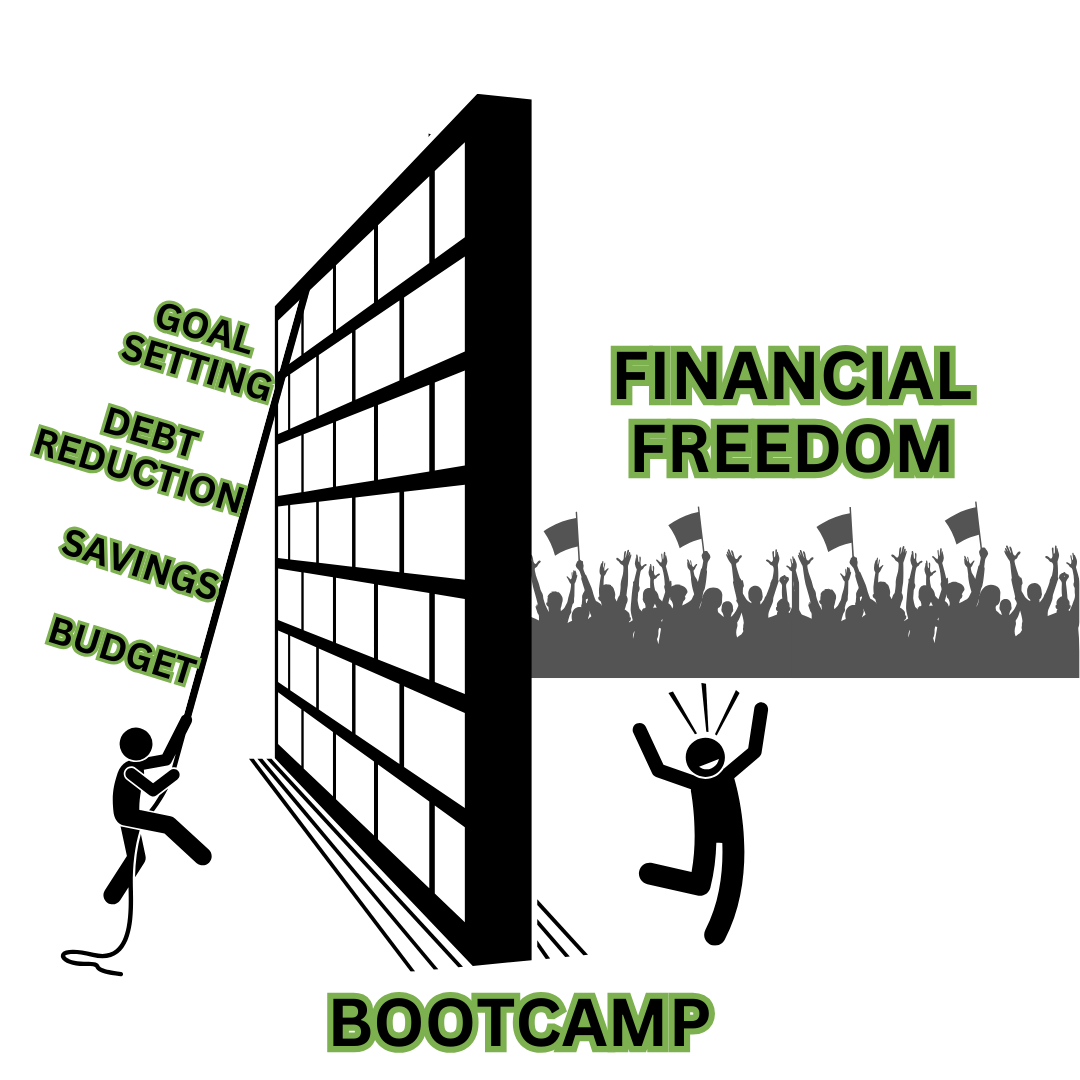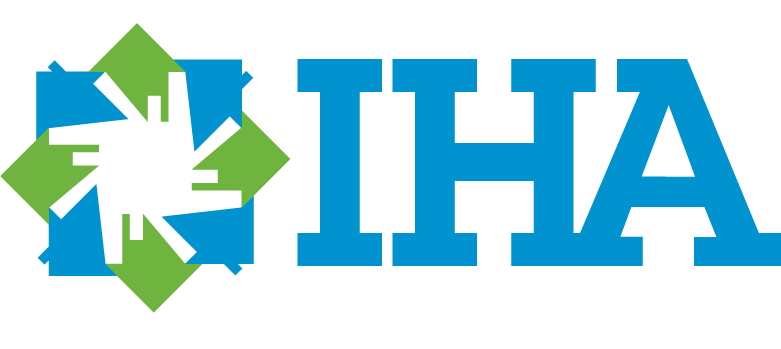June is National Homeownership Month
June is National Homeownership Month

Homeownership means more than just a safe, comfortable place to come home to, it is oftentimes the only way for a low-income household to build wealth. And not just for the immediate household, but for the future generations that will inherit that wealth.
For example, one of our clients purchased a home in November 2019 and could sell it today for $166,000 more than she paid for it. That is a gain (non-taxed income) of about $36,889 per year. A remarkable return for a single mom with 6 children earning just $50,000 a year.
However, some would say that there are better ways to increase wealth, for example by investing in stocks and bonds, which historically do show a higher return than the growth in home prices. What is being ignored is that low-income households can’t afford to buy stocks and bonds in addition to paying for housing – one of our basic needs. Others suggest that renting may be a better choice without stopping to realize that unless the landlord intends to lose money, renters pay for 100% of the costs of ownership plus a percentage of profit to the owner of the rental unit (not-for-profit owners like IHA excluded).
What homeownership offers is a way to keep some, or as in the case mentioned earlier, all of their homeownership costs as part of their overall net worth. It is a form of forced saving – the family needs to pay for housing, so why not build your net worth instead of your landlord’s net worth.
Of course, homeownership includes maintenance and repairs, but so do rentals, so again, these costs are also reflected in the rent a landlord charges. Because home maintenance and repairs can be expensive
and IHA wants its clients to be able to afford living in the home they purchase for many, many years, our homeownership program strives to teach basic maintenance and repairs to our program participants.
Learning how to take care of a home builds confidence through knowledge that some things don’t require a contractor such as power washing decks, caulking and painting, cleaning gutters, repairing driveway surfaces, patching settlement cracks and dents in drywall, rehanging closet doors, replacing screens, etc. In addition, for those repairs that do require licensed contractors, we teach our clients how to solicit and compare estimates, choose the right contractor and make sure the work and price agreed upon is in writing.
Most of IHA’s homeownership clients are first generation, meaning the first in their family to purchase a home.
To learn more visit:
www.interfaithhousing.org/purchase-repair-homeownership



